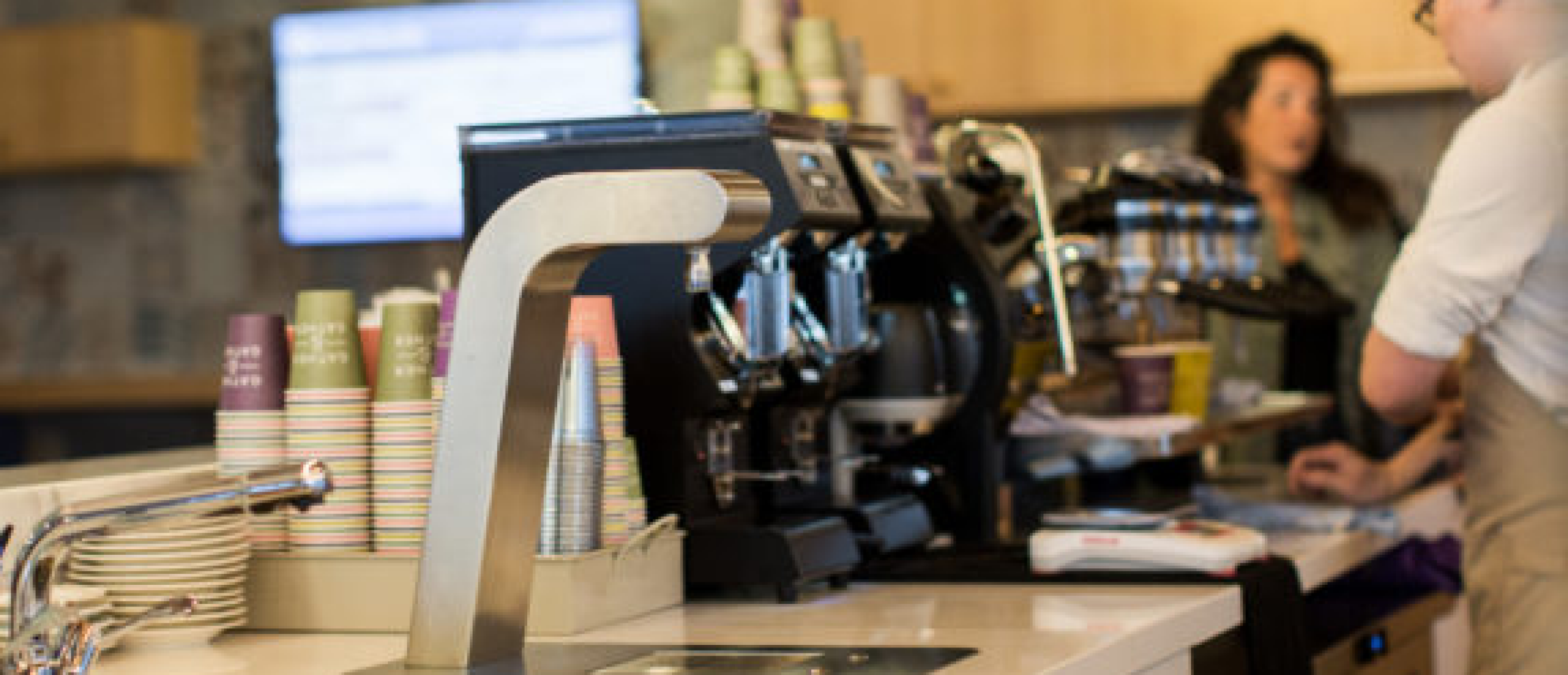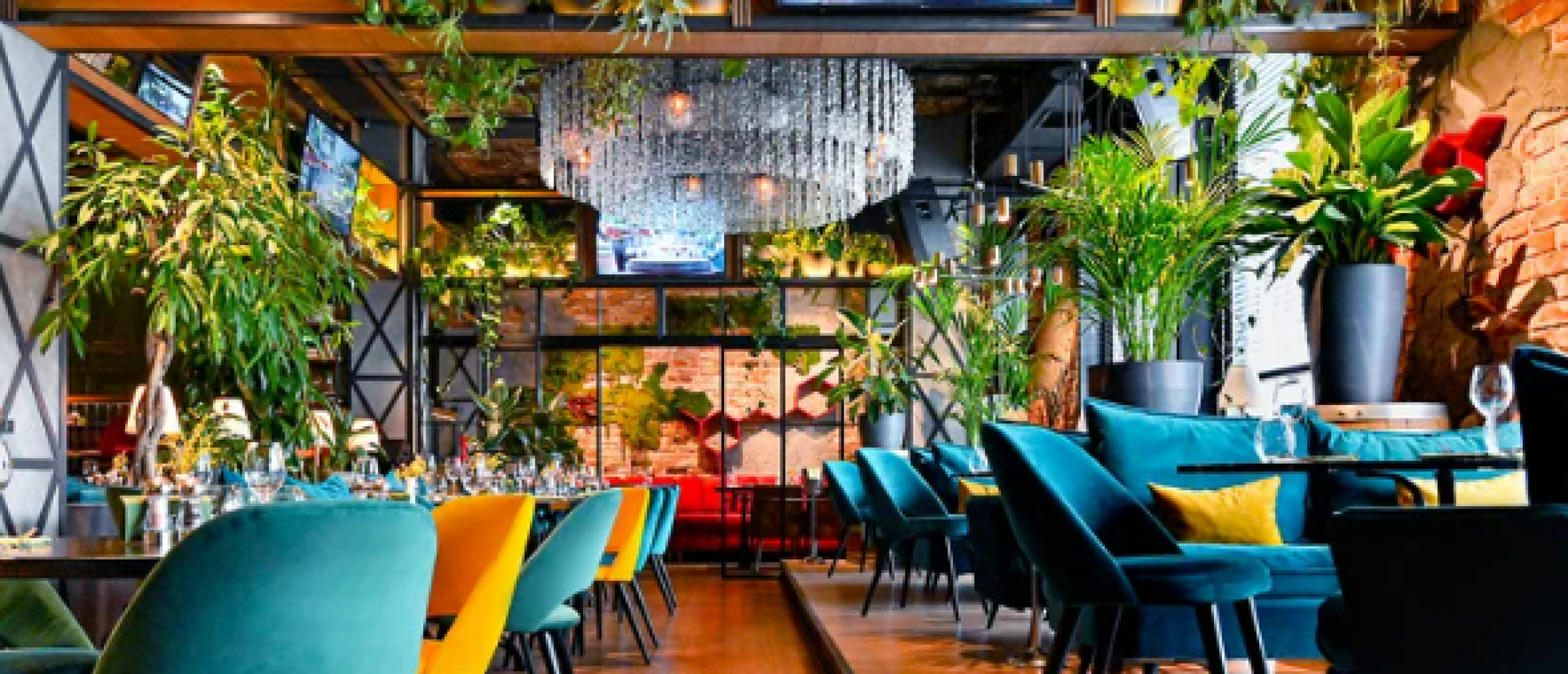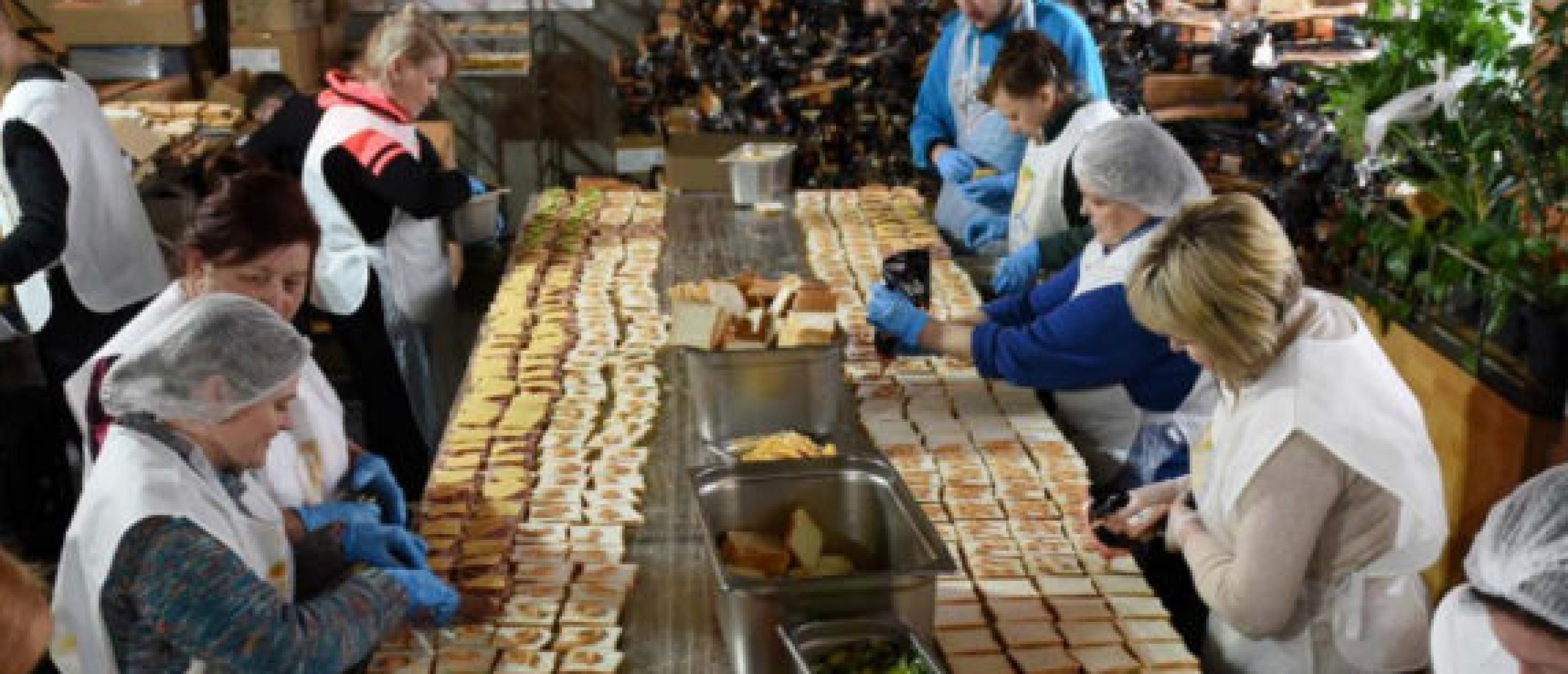Marco Beverage Systems has grown into a company with international reach. Jim Banks talks to executive chairman Drewry Pearson and managing director Paul Stack about plans for the future
In the early 1980s, when engineer Martin Coughlan and his son were working for Ireland’s largest catering engineering company, a new idea began to form. This would ultimately lead them on a journey that would revolutionize beverage dispense technology. As the idea took shape, the pair were able to start their own company, Marco Beverage Systems.
The idea from which the company has grown was a new way to control pressure boilers using a unique electronic system that enabled precise temperature control in a compact unit.
“In those days there were no microwaves. Pressure boilers were used for many things, including heating food, so the technology generated immediate interest in Ireland, where we drink loads of tea,” says Drewry Pearson, executive chairman at Marco. “Then, the system was exported to the UK, but it took 10 years to really get off the ground and that is when I bought the company.
“Back then, most machines were controlled like a toilet, with an arm that went up and down,” he adds. “They got stuck, covered in limescale and machines overflowed. So, there was a huge demand for precise temperature control.”
After Pearson took over, the company moved into coffee brewing and started to expand rapidly, increasing its international sales, deepening its knowledge of the beverage market, and further refining the technology. From water boilers, it extended its reach into brewing and dispense technology for coffee brewing and hot, cold and sparkling water dispense systems.
“We are specialists in what we do,” says Pearson. “We don’t try to be everything to everyone, but we have knowledge and precision in what we do.”
Precision by design
Today, Marco designs, manufactures, sells and services precise, energy-efficient and innovative water boilers and coffee brewing systems and beverage dispense solutions. Its technology is used by some of the biggest names in the coffee, foodservice and catering industries, and is found in coffee shops, offices, hotels, convenience stores and restaurants across the world.
Marco’s purpose is to ‘re-imagine beverage excellence everywhere’, which it strives to live up to through close collaboration with its customers, and constantly refining its understanding of its key markets. It has, for example, moved from pressure boilers into atmospheric boilers, and developed in- depth knowledge of the coffee industry to develop its brewing range. It has also moved into cold-water dispensing to diversify its menu range.
“I drive the geographical market expansion, which has gone from the UK into Europe, then into the US market, and then into Asia-Pacific, where customers want new products rather than replacement products,” says Pearson.
“We were the first company disrupting the layout to drive everything undercounter, so from a design and workflow perspective we have always sought to deliver expert beverage experience – initially hot water and hot coffee, then into cold water and different flavor deliverables,” explains managing director Paul Stack. “We were the first to move undercounter for both coffee and water systems.”
With its focus on aesthetics, design and functionality, Marco started a trend. Putting a big, ill-considered lump of metal on the countertop is now shunned in fitouts for retail and business spaces.
POUR’D is Marco’s award-winning cold coffee dispense system that creates a variety of coffee drinks – including mochas, lattes and cold brews – from concentrate through a single font/tap. FRIIA is an undercounter water solution that provides an alternative to single use plastics and delivers hot, cold and sparkling water from a single tap. MIX is Marco’s undercounter hot water system that delivers three temperatures and three volumes of hot water from a single font, with a saving of up to 70% in energy use compared to leading competitors.
“Precision is important, too, as is consideration of provenance and preparation in the coffee world,” says Stack. “We have invested in our own knowledge of beverage preparation as a culinary expectation. The result is design, focus and beverage excellence to make life better for the user. “For instance, coffee is now a connoisseur’s product and, being a smaller company, we have been able to invest in that niche area and learn where the market was going and what customers wanted as future disruptors,” he adds.
The move into cold-water dispense solutions has been critical. Starbucks reported that almost 75% of its Q3 US beverage sales were cold. So, too, has the move into tea, which is following the trajectory of coffee, albeit at a slower pace.
“Tea is a growing force over the last 10 years,” Stack explains. “It is a strong and growing market and people are investing in it, though it is less of a juggernaut than the coffee space. It has relied on coffee systems for delivery, but it is about to take off in its own right. Bubble tea is invading the whole world. We are always trying to stay ahead of market trends and gazing into the future to see what platforms or beverages are needed.”
“We work on the basis of platforms,” says Pearson. “Our solutions are modular and can grow to suit the needs of the end user and help with menu diversification. That is where the pull comes from – menu diversification and sustainability. We break those down to best-in-class hot water and cold water and the best in flavor management.”
No sustainability, no beverage market
As Pearson suggests, sustainability is a key part of Marco’s corporate social responsibility efforts. This manifests in many ways – support for local communities, broader initiatives that reflect the needs of the global supply chain, and a focus on energy-efficient design. Its dispense solutions are themselves a way of reducing reliance on single use plastics, but there are specific elements in the design of Marco’s solutions that help users to reduce consumption of both energy and water. “We make our equipment the most energy-efficient on the market,” says Pearson. “Our boiler is basically a thermos flask, so no heat comes out. The UN’s 2030 sustainable development goals and the EU’s 2050 climate neutral economy goal are the only things that are important. If we don’t get it right, there won’t be markets to sell into. The real end of the world comes in 2050.”
For Pearson, sustainability is the only thing that matters. After all, he points out, we are only one and half new kitchens away from 2050. “It is a fascinating journey, and it is finite now,” says Stack. “Sustainability at Marco was about ensuring we have the world’s most energy-efficient hot water delivery system in the world. Being best-in-class in sustainability has been a fundamental part of our design process. In any specific location we help to reduce single-use containers, which won’t be allowed in a few years and will be replaced by dispense from concentrates. And we focus on the circular economy by enabling the recycling of our machines.”
Marco is also investing in coffee sustainability, supporting the 20/20 project to reduce poverty in coffee- producing countries in Africa and Asia, and being an active volunteer in the global Specialty Coffee Association, which champions an equitable coffee value chain.
Appetite for disruption
Remaining best-in-class in terms of technology and sustainability requires constant innovation and product development. The latest iteration involved digitalization, which supports the fast-growing trend towards automation. “It is about identifying value,” says Pearson. “On a product we launched 10 years ago, we had a data connection, but no one wanted to spend money on it.
Now, there is demand for pay and go, for customers to design and order their own drinks, and for data to support preventative maintenance and inventory management.”
At the same time, Marco is striving to stay ahead of trends in the global markets it is targeting, in order to refine the three key platforms it offers and to respond to changes in the global supply chain.
“The majority of coffee is sold through drip or filter for bulk brewers, but that cannot last, and it is not sustainable,” says Stack. “Bulk coffee delivery must be handled in a more sustainable way, and we are going after that to disrupt it while still delivering on customer expectations. We also have to support menu diversification in a sustainable way, which is through dispense systems, and we will continue to work with major innovative clients to guide our strategic intent.”
“People are moving to cold rather than hot – 60% of drinks in the US are now cold, even through the winter – so making cold beverage platforms work will be a huge part of our future,” notes Pearson. “Geographically, the APAC region and China will be an important focus for us. It is a vibrant part of the world, though the US is still the powerhouse for most of what we do.”
From humble beginnings, Marco has grown to become a major disruptor of markets and its ambition to dig deep into its niche beverage sectors and to drive forward the sustainability agenda will no doubt catch the eye of more commercial customers across the globe. The symbiotic relationship between its purpose and its technology is hard to ignore.







